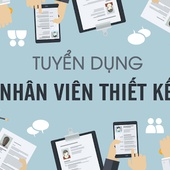Corporate Income Tax
With an aim to make Vietnam enterprises more competitive and Vietnam business environment more inviting, the standard CIT rate was reduced from 28% to 25%.
The Law on Corporate Income Tax (CIT) in Vietnam was amended in June 2008 and has been in effect since January 1, 2009. A significant alteration is that individuals conducting business are not governed by the CIT Law, but rather by the Law on Personal Income Tax. Consequently, the amended CIT Law exclusively applies to taxpayers operating as corporations.
To enhance the competitiveness of Vietnamese enterprises and create a more inviting business environment, the standard CIT rate was lowered from 28% to 20% as of 2025. However, there are two notable exceptions.
First, concerning the exploration, investigation, and exploitation of petroleum and other rare and precious natural resources in Vietnam, the CIT rate remains at a range from 32% to 50%, determined specifically by the Prime Minister of the Government.
Second, taxpayers eligible for preferential tax rates are subjected to rates that differ from the standard rate. The revised Law presents fewer and less favorable incentives compared to the previous 2001 Law, offering solely two preferential tax rates of 10% and 20%, as opposed to the earlier three tax rates of 10%, 15%, and 20%.
The 10% rate applies for a duration of 15 years to newly-established enterprises resulting from investment projects in particularly challenging socio-economic conditions. The 20% rate applies to enterprises functioning in regions with difficult socio-economic environments. Furthermore, enterprises operating in the social sectors, including education and training, vocational training, health care, culture, sports, and environmental protection, are also subject to the 10% tax rate.
Those subject to the 10% tax rate can benefit from a tax exemption for up to 4 years and a subsequent 50% reduction for up to 9 years. Conversely, those subject to the 20% tax rate are exempt from CIT for just 2 years, with a 50% reduction applicable for up to 4 years.
For enterprises founded after January 1, 2009, the incentive period begins either in the first year that profits are realized or after the fourth year of revenue generation. Unlike in the past, the incentive period does not commence solely from the first profit year. Tax incentives for new enterprises located within industrial zones and those listed under preferential investment according to Decree No. 108/2006/ND-CP have been abolished. Furthermore, tax incentives no longer pertain to business expansion activities.
In terms of deductible expenses, unlike the previous law, the new Law does not explicitly designate specific expenses as deductible or non-deductible for taxable income calculations. Instead, it establishes regulations and criteria to identify deductible expenses while listing non-deductible ones. Therefore, any expense not categorized as non-deductible, incurred in relation to the company's production and business activities, and supported by complete invoices and documentation as stipulated by law, is deemed a deductible expense.
For foreign entities, any firm established and operating under the Law on Foreign Investment in Vietnam is also subject to the current CIT Law.
Related Readings:
Guide to Personal Income Tax in Vietnam











